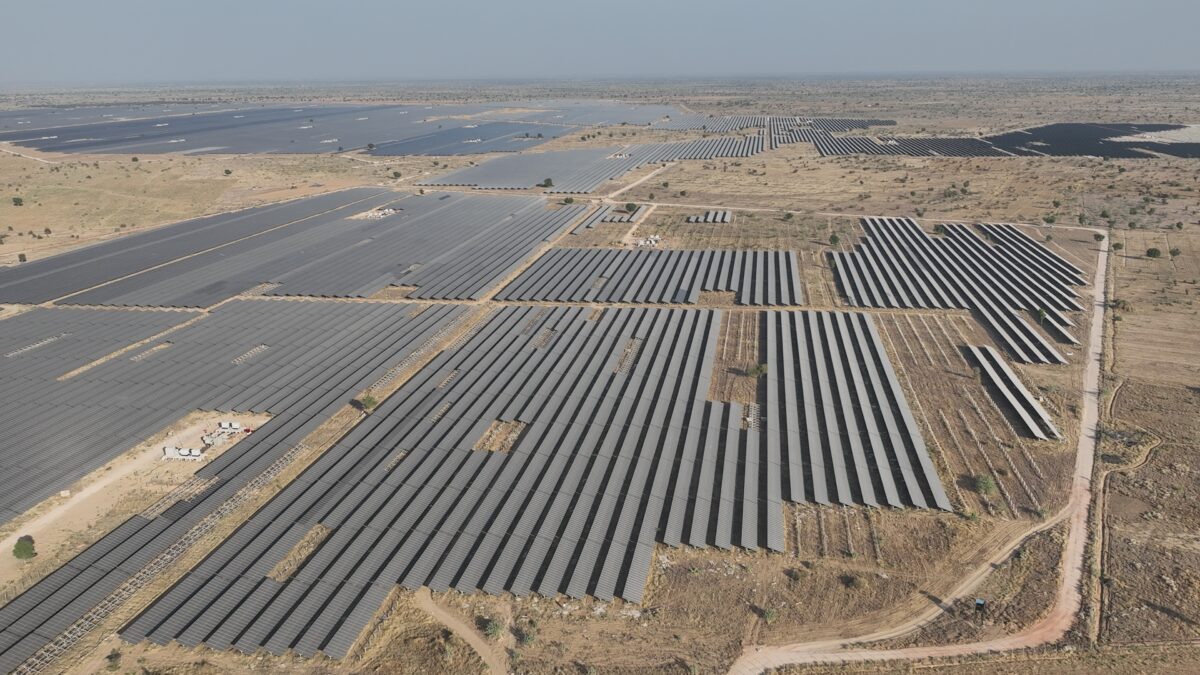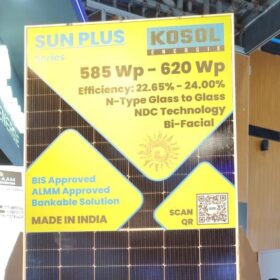India added 7,782 MW solar power generation capacity in Q1 2025, an 8.4% drop year-over-year (YoY) from the record high achieved in 1Q 2024. However, despite the reduction, it is the second-highest capacity installation achieved in the last 13 quarters, according to a power sector summary by IEEFA.
Quarter-on-quarter (QoQ) solar installations were 9.6% up from Q4 2024.
At 1,875 MW in Q1 2025, wind power capacity additions were the highest in the last 13 quarters.
“Increased solar and wind capacity additions are driven by higher offered capacities through various tenders—solar, wind, solar + wind hybrids, and energy storage— since 2018. While total tendered capacity increased to 40 GW in 2018 and 2019 (and dipped during COVID-19 years), it crossed 50 GW in 2023 and 2024,” stated IEEFA. “Tendered capacity has been increasing since 2023 driven by India’s ambition to add about 50 GW of non-fossil fuel power capacity every year from 2023 to achieve 500GW of the said capacity by 2030. However, delays in signing power supply agreements and in receiving permits and approvals, and hurdles in gaining grid connectivity continue to hinder capacity installations.”
The IEEFA report states that Rajasthan and Gujarat led renewable energy capacity addition by installing 1,973 MW and 1,910 MW, respectively, in Q1 2025. Maharashtra (1,780MW) and Karnataka (1,316MW) also added significant capacities in Q1 2025. For the first time in several quarters, Andhra Pradesh experienced an uptick in renewable energy capacity installations (940 MW) in Q1 2025. “It is witnessing renewed interest from renewable energy investors with the implementation of its new Integrated Clean Energy Policy in October 2024, which aims to install 160 GW of clean energy and energy storage capacities over five years,” stated IEEFA.
India’s cumulative installed solar capacity reached 106 GW as of March 31, 2025. Wind power capacity surpassed 50 GW.
This content is protected by copyright and may not be reused. If you want to cooperate with us and would like to reuse some of our content, please contact: editors@pv-magazine.com.









By submitting this form you agree to pv magazine using your data for the purposes of publishing your comment.
Your personal data will only be disclosed or otherwise transmitted to third parties for the purposes of spam filtering or if this is necessary for technical maintenance of the website. Any other transfer to third parties will not take place unless this is justified on the basis of applicable data protection regulations or if pv magazine is legally obliged to do so.
You may revoke this consent at any time with effect for the future, in which case your personal data will be deleted immediately. Otherwise, your data will be deleted if pv magazine has processed your request or the purpose of data storage is fulfilled.
Further information on data privacy can be found in our Data Protection Policy.